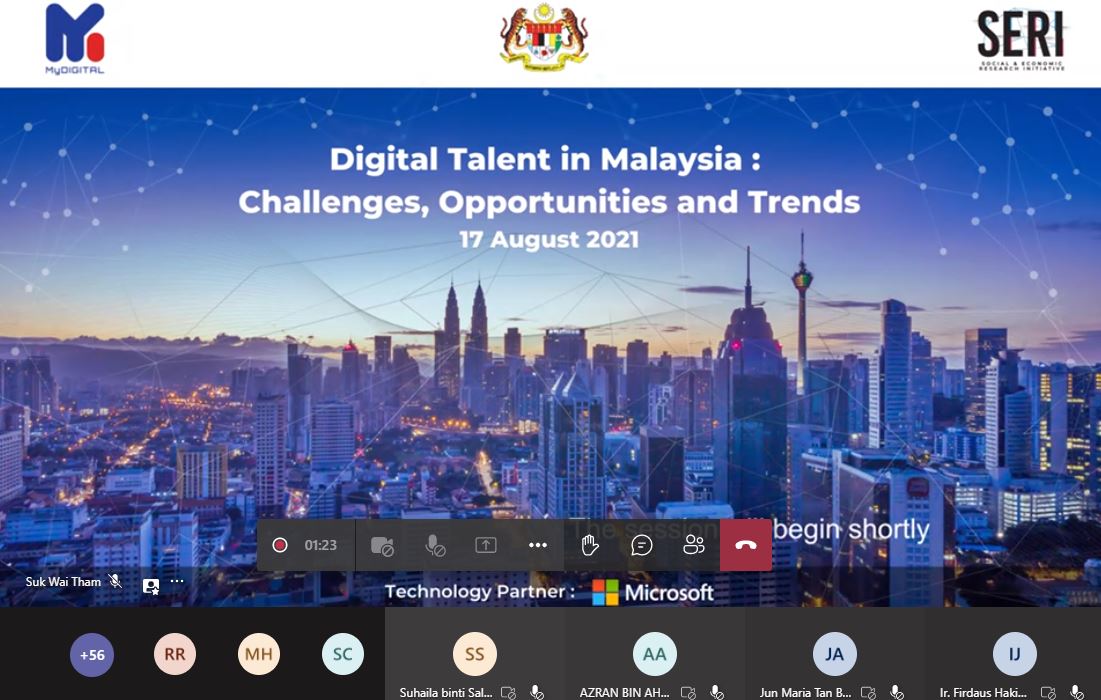Estimated reading time: 3 minutes
A survey as well as industry engagement sessions since early 2021, have culminated in a Digital Talent Forum this morning by the SCMO, EPU and think tank, SERI.
The forum kicked off with welcome remarks by Fabian Bigar, CEO of the EPU’s Strategic Change Management Office (SCMO). After opening and keynote speeches, the survey report was presented.
Table of contents
Survey results
The Digital Talent Survey had 70 respondents across Micro, Small and Medium Enterprises (MSMEs) and large companies, representing a variety of sectors. Around 46% of the companies were from the technology sector, 13% from the Financial & Insurance sector, and 7% from both Healthcare and Professional Services industries.

Below are some key findings from the survey:
- Respondents identified the top two barriers to having adequate and sufficient digital talent as: skills gaps in the local labour market and inability to attract specialised talent.
- Big Data Analytics and Digital Marketing were the digital skills most sought after by employers, followed by Artificial Intelligence, Data Science, Cybersecurity, and Cloud Computing.
- Critical thinking and analysis, analytical thinking and innovation, and collaboration topped the list of soft skills, followed by English proficiency, and communication.
- On average, only 4.8% of respondents felt that the existing labour market fully meets their digital talent needs.
- According to survey respondents, the following are the tech roles which tend to remain vacant for more than three months: Big Data Analytics, Data Science, Cybersecurity, Artificial Intelligence, Cloud Computing.
New, Now, and Never Normal
As an overview, some of the key suggestions by industry respondents included the need for:
- greater engagement between the various stakeholders,
- providing clarity on available resources that were open to various stakeholder
- leveraging on public private partnerships
- education system to respond better to industry requirements
- transforming education system as early as preschool to keep up with needs of changing economy
- tech talent visa to attract high-skilled foreign talent
We have to educate our children for jobs that are not only in existence, or jobs that at this point in time don’t exist. We need to do this across generations, we need to do this in a time when children are not going to school. And we are doing this at a time where we need to ensure that everyone has access.
The Ministry of Human Resources (MOHR) shared there are 59 programmes that map to four 4IR-related technologies, with new areas being developed to meet new demand.
SERI’s CEO, Dr. Helmi Haja Mydin concluded, “When it comes to upskilling and reskilling individuals and a global digital workforce, it’s something that needs to be shaped in order to meet the rigorous demands of the future of work. We have to educate our children for jobs that are not only in existence, or jobs that at this point in time don’t exist. We need to do this across generations, we need to do this in a time when children are not going to school. And we are doing this at a time where we need to ensure that everyone has access.”








